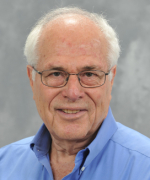Chimeric Antigen Receptor T-Cells (CAR-Ts) are one of the revolutionary technologies of the twenty-first century, invented by Prof. Zelig Eshhar at the Weizmann Institute of Science. FDA approvals for CAR T cells against B-ALL and DLBCL pave the way for CAR-T cell application against other types of cancers.
However, the CAR-T technology still suffers from a number of shortfalls. While the efficacy against B cell cancers has been dramatic, the responses of other tumor types, and particularly solid tumors, has been much more modest. In addition, the logistical complexity and the overall labor involved in using the patient’s own cells are significant. Consequently, there are significant advantages to shift away from autologous cells (a patient’s own cells) and to using allogeneic cells (donor cells) as the basis of CAR-Ts, to create a truly “off-the-shelf” treatment.
The group of Prof. Eshhar has developed a method for an adoptive cell therapy, such that cells from donors can be applied in a patient. The technology has already shown positive results in mouse models as well as superiority over autologous CAR T cells, and Prof. Eshhar’s team is looking to translate the work into human subjects.
The basis of the Universal CAR-T technology is that it uses a fundamental understanding of the immune system to allow for adoptive cell therapy. The Eshhar’s group protocol uses both controlled lympho-depletion and repurposes the FDA approved drug Fingolimod (Gilenya), which sequesters a patient’s lymphocytes to the lymphoid organs. These two actions permit allogenic T-Cells to effectively function, creating an optimal therapeutic window for the CAR-Ts to destroy the malignancy. In this way the graft versus host reactivity of the allogeneic CAR T cells is redirected against the cancer. This redirection achieves two goals: first, it inhibits the development of graft versus host disease, and second it boosts the effectiveness of the treatment. Present experimental work has shown that allogeneic CAR T cells are superior to autologous CAR T cells in mouse models.
The technology also has numerous advantages including enhanced efficacy, a simplified production process for CAR-Ts, non-exhausted cells leading to a better outcome, and a general flexibility as the technology could function regardless of target (e.g. not CD19 exclusive) or even cell type (e.g. could be applied for TCRs, or next generation CAR therapies).
- A method for Universal CAR-Ts
- Simplifying the application of CAR-Ts
- Reduction of cost
- More effective CAR-T cells


